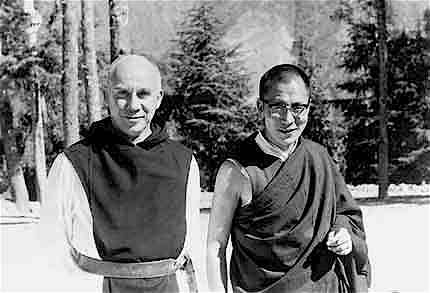by Akim Reinhardt
 Several co-workers, all of whom have Ph.D.s. An old friend who’s a physicist. Scads of family members of both blue and white collar variety. Numerous neighbors. And of course the well dressed, kindly old women who occasionally show up at my door uninvited, pamphlets in hand.
Several co-workers, all of whom have Ph.D.s. An old friend who’s a physicist. Scads of family members of both blue and white collar variety. Numerous neighbors. And of course the well dressed, kindly old women who occasionally show up at my door uninvited, pamphlets in hand.
One can point to general trends about the powerless, the vulnerable, and the less-educated as likelier to believe in God than those full of book learnin’ or living the good life. But But when the vast, vast majority believe, the believers represent a thorough cross-section of society. And so my daily existence, and that of many if not most atheists, involves sharing interactions and ideas with all sorts of people, wealthy and poor, old and young, male and female, well educated and not, who embrace magical thinking to one degree or another. Who believe either quite vividly or a bit vaguely in a supreme, celestial being or force with at least some degree of sentience and even an agenda. A god who sees and hears us. And perhaps a soul or spirit within in us that lives on after our bodies have given out, some ethereal expression of immortality, some mechanism of continuity after this go-around is done, some medium of transcendence into a heavenly (or hellish) destiny, or perhaps into another corpus, whether animal or human yet unborn, and from there a fresh start.
We, the atheists, the ones who, if you are anything like me, cannot believe even if we desperately want to because we find it patently unbelievable, are a small minority around the world. Here in the Untied States we number a scant 3%. All around us, a great majority run the gamut: agnostics (only 4%) who may one day end up like us; a growing number of people who just don’t think about it all that much until they end up in some proverbial foxhole; conscious believers, such as my friend the physicist, who might be like us in countless other ways; hardier believers hungrily gulping up the magic; and ever up the scale eventually peaking with a small number of badly broken and certifiably insane people who think they themselves are this or that saint or such and such deity. Read more »

